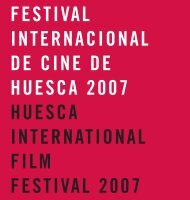A PEPE ESCRICHE - Festival de Cine de Huesca
A PEPE ESCRICHE - Festival de Cine de Huesca
A PEPE ESCRICHE - Festival de Cine de Huesca
Create successful ePaper yourself
Turn your PDF publications into a flip-book with our unique Google optimized e-Paper software.
Mariví Bilbao Goyoaga (Bilbao, 1930) es una actriz <strong>de</strong> carácter. Dicho así, pue<strong>de</strong> sonar<br />
a tópico, pero lo <strong>de</strong> “actriz <strong>de</strong> carácter”, en su caso, hace referencia a su enorme<br />
personalidad. Hablar <strong>de</strong> Mariví es hacerlo <strong>de</strong> una mujer que ha <strong>de</strong>dicado toda su vida<br />
a la interpretación, que nunca ha renunciado a ese “carácter” a la hora <strong>de</strong> acercarse<br />
a cualquiera <strong>de</strong> los papeles que ha interpretado, en los escenarios o en la pantalla.<br />
Si se le conociese <strong>de</strong> una sola interpretación, cualquier espectador se daría cuenta<br />
inmediatamente <strong>de</strong> que <strong>de</strong>trás <strong>de</strong> ese papel hay un torrente <strong>de</strong> vida. Cuando se<br />
enfrenta a un personaje (a cualquier personaje, sea protagonista o episódico) Mariví<br />
Bilbao intenta sacar <strong>de</strong> él todo lo que tiene <strong>de</strong>ntro. Pero no sólo eso. Le acerca a su<br />
terreno, le estruja, le absorbe y, a cambio, le traspasa toda su (enorme) energía. No es<br />
una actriz <strong>de</strong> método. Es una actriz intuitiva, tremendamente personal y capaz <strong>de</strong> los<br />
más variados registros, <strong>de</strong>s<strong>de</strong> la comedia más tierna (Éramos pocos, Borja Cobeaga,<br />
2005) al drama más inhóspito (Alumbramiento, Eduardo Chapero-Jackson, 2007),<br />
por citar dos <strong>de</strong> sus últimos y más brillantes trabajos.<br />
Durante muchos años fue, básicamente, una actriz <strong>de</strong> teatro. En los sesenta fue uno<br />
<strong>de</strong> los puntales <strong>de</strong> la compañía bilbaína Akelarre. En los años ochenta se convirtió en<br />
protagonista <strong>de</strong> una buena parte <strong>de</strong>l cine vasco. Más tar<strong>de</strong>, en “reina <strong>de</strong> los cortos”,<br />
como recuerda divertida que fue proclamada en el <strong>Festival</strong> <strong>de</strong> <strong>Cine</strong> <strong>de</strong> Palencia. Tras<br />
apariciones esporádicas en diversos programas y series televisivas, le llegó el éxito<br />
con la serie Aquí no hay quien viva (2003-2006). Un éxito arrollador que le ha <strong>de</strong>parado<br />
una inmensa popularidad, que seguramente ya no esperaba. Porque Mariví<br />
Bilbao no espera, busca. Divertida, ácida, inconformista, locuaz. Ha trabajado con<br />
algunos <strong>de</strong> los mejores directores <strong>de</strong>l cine español (Javier Rebollo, Juan Ortuoste,<br />
Ramón Barea, Daniel Calparsoro, Álex <strong>de</strong> la Iglesia, Pablo Berger, Carlos Saura, Chus<br />
Gutiérrez…), pero también se ha convertido en asidua colaboradora <strong>de</strong> muchos <strong>de</strong> los<br />
más brillantes directores jóvenes <strong>de</strong> los últimos años (Koldo Serra, Pablo Malo, Borja<br />
Cobeaga, José María Goenaga, Eduardo Chapero-Jackson…).<br />
Mariví Bilbao nunca pasa <strong>de</strong>sapercibida, siempre llena la pantalla con su presencia.<br />
Su rostro aparentemente duro, se pue<strong>de</strong> transformar sin esfuerzo en el más tierno.<br />
Sus ojos relampagueantes dicen más con una mirada que <strong>de</strong>cenas <strong>de</strong> discursos. Su<br />
voz, seca y grave, pero clara y luminosa, se <strong>de</strong>shace en los más sutiles registros. Su<br />
figura, enjuta y menuda, apenas consigue retener esa energía que la <strong>de</strong>sborda.<br />
Hablar <strong>de</strong> Mariví es hablar <strong>de</strong> una <strong>de</strong> las más gran<strong>de</strong>s <strong>de</strong> nuestro cine. El tiempo ha<br />
tardado en <strong>de</strong>mostrarlo, pero era algo inevitable. Lástima que ese tardío reconocimiento<br />
nos haya hurtado tantas gran<strong>de</strong>s interpretaciones. Pero nunca es tar<strong>de</strong>. Su<br />
fuerza y su enorme capacidad <strong>de</strong> trabajo nos darán todavía a todos muchos momentos<br />
mágicos, alumbrados por una enorme sabiduría acumulada.<br />
Mariví Bilbao Goyoaga (Bilbao, 1930) is an actress with character. Said that way, it<br />
may sound a bit cliché, but the “actress with character”, in her case, refers to her<br />
huge personality. To speak of Mariví is to speak of a woman who has <strong>de</strong>dicated her<br />
whole life to interpretation, one that has never relinquished that “character” at the<br />
time of putting herself in any of the roles she has interpreted, be it on stage or on the<br />
screen. If she was to be known for just one of her interpretations, any member of the<br />
audience would immediately know that behind that role there is a pouring of life. When<br />
she is given a role (of any character, be it a leading or episodic one) Mariví Bilbao tries<br />
to make the most out that character. Not only that. She brings it closer to her own<br />
ground, she wrings it and absorbs it, and in exchange, she gives it all her (enormous)<br />
JESÚS ANGULO<br />
MARIVÍ<br />
BILBAO<br />
PREMIO CIUDAD<br />
DE HUESCA<br />
DE CORTOMETRAJE<br />
AWARD CIUDAD<br />
DE HUESCA<br />
SHORT FILM<br />
energy. She is not a method actress. She is an intuitive actress, increasingly personal<br />
and capable of the most varied roles, from the most ten<strong>de</strong>r comedy (Éramos pocos,<br />
Borja Cobeaga, 2005) to the most inhospitable drama (Alumbramiento, Eduardo<br />
Chapero-Jackson, 2007), just to name her two latest and most brilliant roles.<br />
For many years, she was basically a stage actress. In the sixties she was one of the<br />
members of Akelarre, a theatre company from Bilbao. In the eighties she became one<br />
of the leading members of the Basque cinema. Later, she remembers fondly, how<br />
she was proclaimed “the queen of short films” at the Palencia Film <strong>Festival</strong>. Through<br />
sporadic appearances in various programs and television series, she finally achieved<br />
success with the series Aqui no hay quien viva (2003-2006). An overwhelming sucess<br />
that has given her immense popularity, something she was not expecting. Mariví does<br />
not wait, she searches. Funny, sharp, nonconformist, talkative. She has worked with<br />
some of the best directors of Spanish cinema (Javier Rebollo, Juan Ortuoste, Ramón<br />
Barea, Daniel Calparsoro, Álex <strong>de</strong> la Iglesia, Pablo Berger, Carlos Saura and Chus<br />
Gutiérrez). She has also become a frequent contributor with some of the most brilliant<br />
young directors over the last few years (Koldo Serra, Pablo Malo, Borja Cobeaga, José<br />
María Goenaga, Eduardo Chapero-Jackson).<br />
Mariví Bilbao never goes unnoticed, she fills the screen with her presence. Her face<br />
apparently harsh can be effortlessly transformed into the most ten<strong>de</strong>r. Her flashing<br />
eyes say more with just one glance than any words could ever say. Her voice, dry and<br />
<strong>de</strong>ep, but clear and bright, melts in the most subtle manner. Her figure, lean and<br />
slight, can hardly contain the energy that overflows.<br />
To speak of Mariví is to speak of one of the greatest of our cinema. Time has taken its<br />
time in <strong>de</strong>monstrating this, but it was something inevitable. It’s a shame that such a<br />
late acknowledgement has robbed us of so many great interpretations. However, it is<br />
never too late. Her strength and huge capacity for working will give us all many more<br />
magical moments, enlightned by an enormous accumulated wisdom.<br />
128 129




